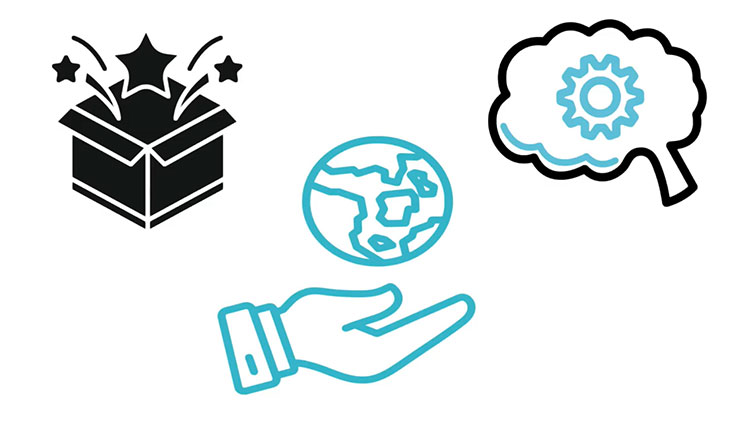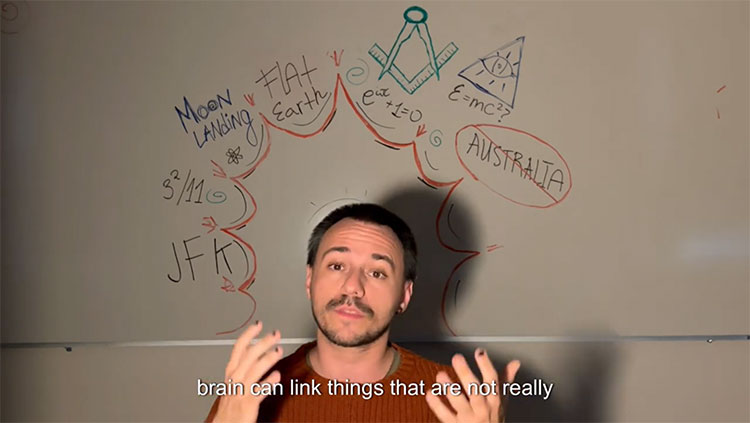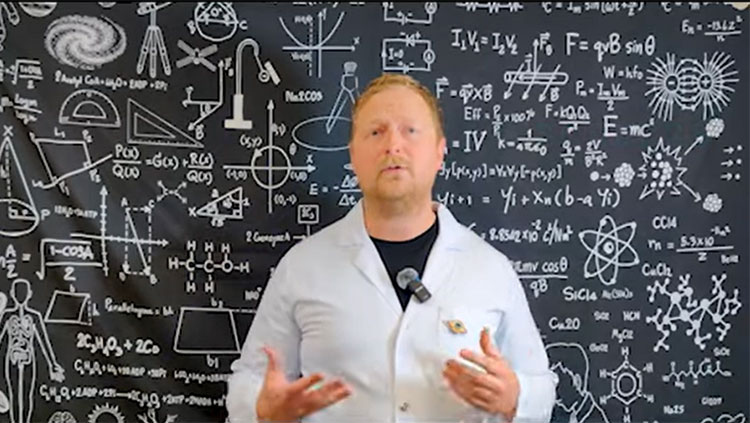Why does time fly when you’re having fun but drag when you’re bored? Temporality, the subjective experience of time, comes from interactions between several regions across the brain. These regions can be tricked into different time perceptions by attention, emotions, and alcohol.
This video is from the 2020 Brain Awareness Video Contest.
Created by Tia Harland-Say
CONTENT PROVIDED BY
BrainFacts/SfN
Transcript
I bet you thought free time was a good thing, didn't you? But picture this: you’ve been having all the time in the world to yourself for a month now. You’ve read all three of the books you own, the Playstation’s as broken as you are, and your beloved cat has been kidnapped by your mum. But you’re content with nothing to do, aren’t you? You’re absolutely fine, right?
You’re not. Of course, you’re not. You’re boring when there’s nothing to do, and you’re stuck with your boring self in a boring time vortex where what seems to be three hours of introspection and meditation is actually only 10 minutes of watching your flatmate fix the garden fence. But why? Why does time always slow to a crawl in the absence of productivity, or fun, or alcohol? Why does it race in their presence?
It’s all to do with something we call temporality that is a subjective human perception of how the past, present, and future connect. The neuroscience that underlies temporality connects several different areas of the brain. Past studies have found that when we are asked to estimate or measure a short time interval of a few seconds, a region called the basal ganglia — which is here — is more active. The cerebellum — that’s here — also shows higher activity and has been linked to our ability to pay attention over longer time durations.
There are other areas that play a role in sustaining attention in the parietal lobe and motor areas and, lo and behold, these areas are also more active when we measure time. This tells us that how we perceive time is not something decided by a single region and the areas that do influence whether we think the minutes are flying or crawling by are usually linked to another function. Hence, our perception of time can be affected by other processes going on in our brains.
Let’s look at attention. In one experiment subjects were asked to complete a simple task. Half of them were told to keep track of how long they took while others weren’t and therefore didn’t pay too much mind to timekeeping. At the end, however, they were all asked the same question: how long did you take? The results showed that people significantly underestimate how long they take when the task is harder and requires more attention.
This effect is still present, albeit smaller, when consciously counting the seconds. In short, the more you’re paying attention, the quicker time seems to go by. Scientists have also found that the perception of duration is affected by a person’s emotions at that time. This only applies to negative emotions like sadness and frustration, but when subjects complete a task that evokes these feelings the event seems to last longer.
Likewise, time also seems to slow down during dangerous events like skydives, car crashes, or even when you’re watching a horror film. This makes sense when you think about evolution. When you’re scared, bad things are likely happening, maybe even deadly things, and the ability to focus and make accurate decisions in a matter of seconds means you’re more likely to survive. The future’s never looked grimmer when you’ve literally just jumped from a plane. By that point, your brain is in such a high state of arousal that time seemingly slows, hopefully to give you enough time to think yourself out of this mess. Good luck.
Now, sure, you probably weren’t frightened the last time you saw your friends, but you may have been very, very drunk. Alcohol, and other drugs for that matter, have a massive impact on the brain’s chemistry. Particularly, it floods many of those brain regions we mentioned with dopamine, affecting their function. The more dopamine, the faster time seems to go by.
This is why the bus journey on the way to work feels a lot slower than the bus journey back from the nightclub you were just thrown out of after seven tequila shots. The impact of dopamine also explains why people with mental disorders such as ADHD and depression are prone to inaccuracies when gauging how much time has gone by.
So, there you have it, a quick rundown of what’s happening in our brains when time flies by and when it’s not. As it turns out, not all seconds are created equal. The difficult, scary, and drunk ones are much shorter, at least from your perspective. Hopefully the last four minutes have raced past you, but if they haven’t, well, maybe you weren’t paying enough attention.
Also In Thinking & Awareness
Trending
Popular articles on BrainFacts.org

















